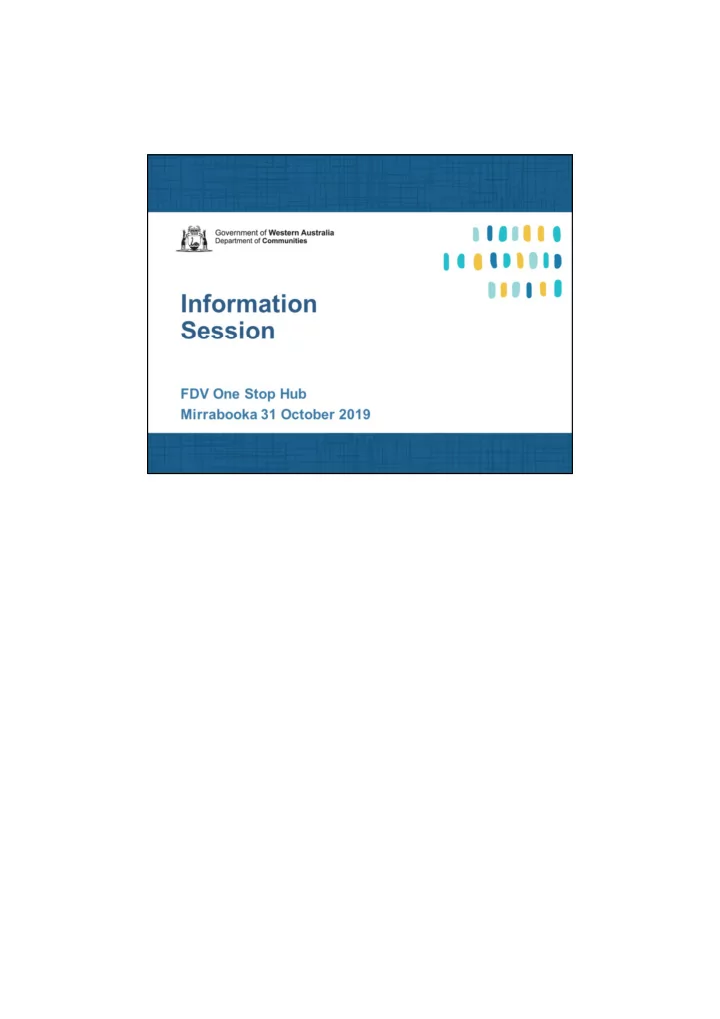

In January 2017 the State Government released its Stopping Family and Domestic Violence Policy. The Policy outlines a strong commitment to keeping Western Australian women and their children safe and has introduced a comprehensive package of reforms aimed at supporting victims of family and domestic violence (FDV). It includes the establishment of two FDV One Stop Hubs to simplify access to specialist FDV support services. The Hubs will provide a wrap-around approach, with a range of support services on site to support victims of FDV in multiple aspects of life. Support services may include services related to: • legal and financial matters • alcohol and other drugs • mental health 6
• counselling • disability • cultural needs, and • housing. Information sharing is pivotal to the successful operation of the Hubs, particularly perpetrator visibility and accountability. Communities is seeking to engage stakeholders, including community sector providers, people with lived experience, Aboriginal and CaLD people in the co-design of the service through open and respectful collaborations. 6
7
8
Rates • In 2018 there were 27 alleged homicides on Western Australians that took place in a family or intimate partner context • This statistic is more than double reported in 2017 (11) Service system • Repeated reviews, stakeholder consultations and feedback from victims have told us the system is too difficult to navigate, offers too little support and protection for women and children Complexity of service responses • When responses are not integrated, it can compromise or escalate risk • Victims fall through the gaps between services • Victims feel disillusioned, disempowered and overwhelmed • Perpetrators become lost or invisible to the system • Agencies make decisions without a full understanding of the risk or the nature of other agencies’ involvement or duplicate risk assessments for the same reason. 10
To deliver an appropriate, evidence based Hub, Communities commissioned Curtin University to research and conduct consultations on service model options. Six focus groups were held in the Perth Metropolitan area (45 people) and two in Broome (17 people). Participants reflected a broad cross section of FDV sector with a mix of front line service practitioners, searvice leaders and managers and policy officers from both government and non-government. WA Service System consultations were conducted as part of the 10 Year Strategy on Homelessness – more than 300 people attended the 12 consultation sessions. There were follow up surveys with (39 questionnaires returned) 11
12
Specialised workers: Bachelor level (minimum), Understanding of FDV, Culturally sensitive, trauma informed, Inclusive practice: will consider the needs of same sex relationships, older people, people with disabilities, CALD, Aboriginal people, adolescent perpetrators Data and information sharing: Evidence repeatedly shows that lack of effective information sharing has resulted in further violence and fatalities. Contains information about the perpetrator for all services not just those dealing with him directly 13
Needs to be tailored to local context. 14
Funding arrangement (if pushed). Initial hubs are a trial. In accordance with Delivering Community Services in Partnership Policy, subject to evaluation and securing future funding intention for long term partnership. 16
18
19
20
21
Recommend
More recommend